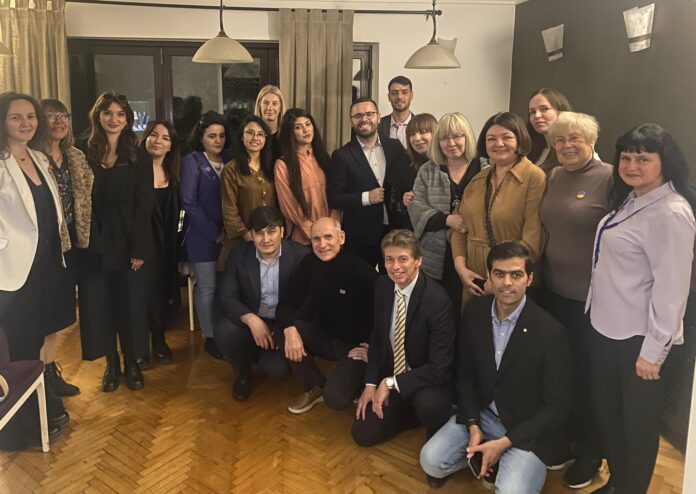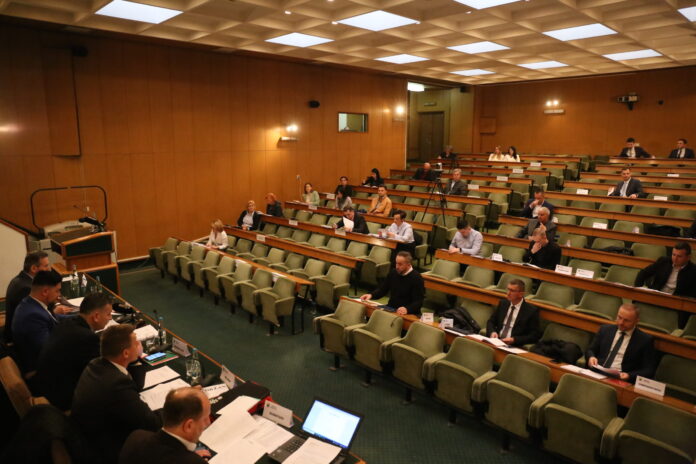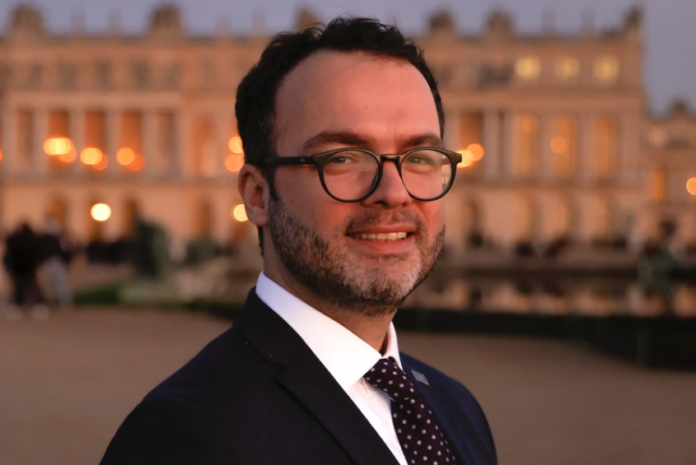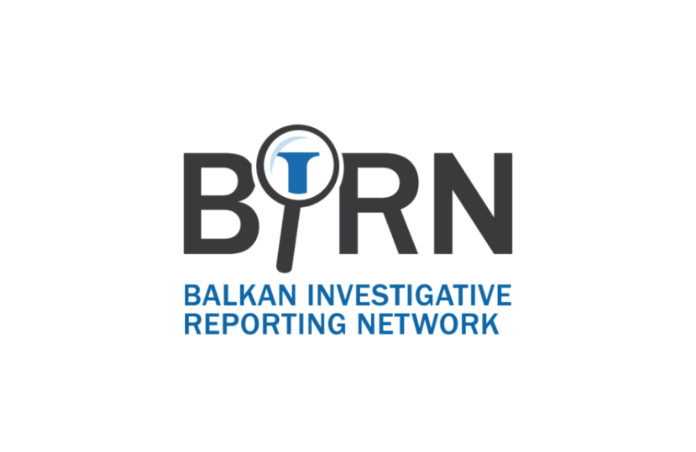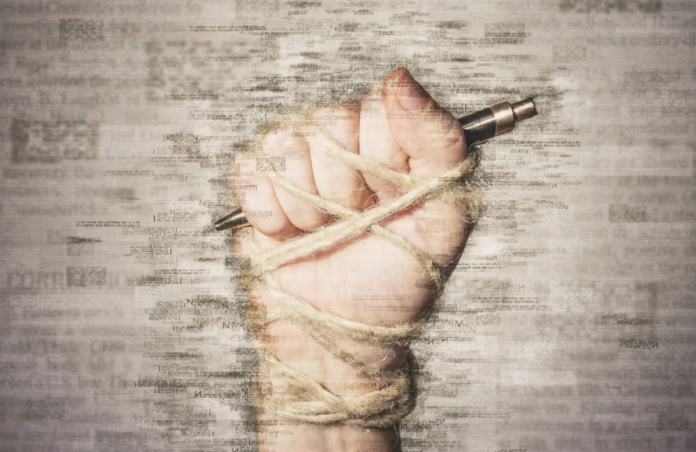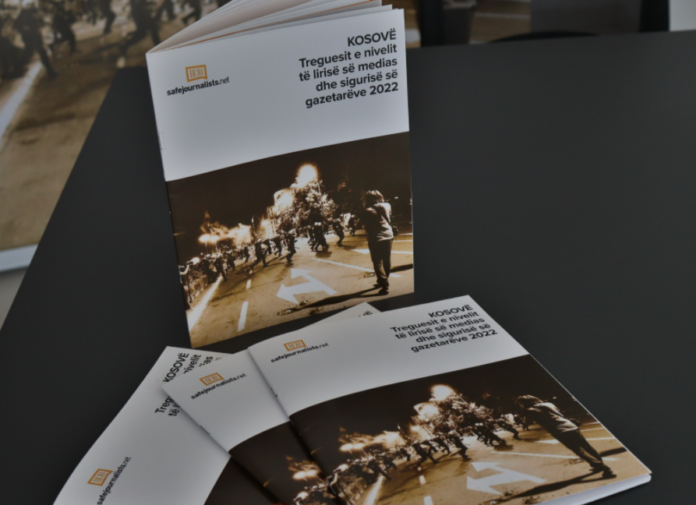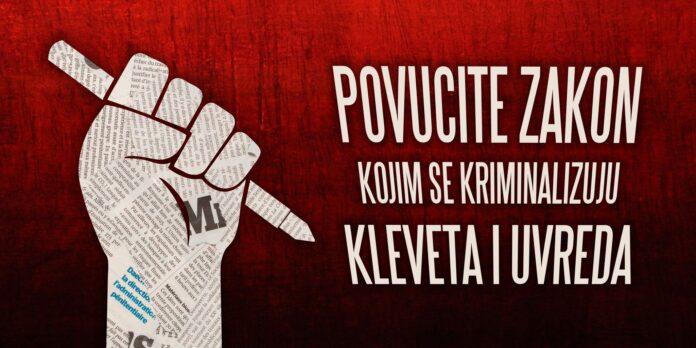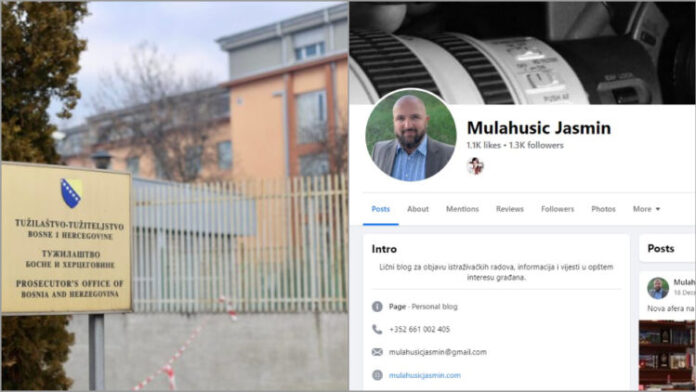The parliament of Republika Srpska approved in the first instance a bill to amend the criminal code which reintroduces the crime of defamation. Now sixty days of public debate and then back to the assembly. A dangerous step backwards for freedom of expression
On March 23, the People’s Assembly of the Republika Srpska approved the bill on the amendments to the Criminal Code. 49 (out of 83) MPs voted in favour of the bill. Now the public consultation is open, which will last sixty days. At the end of the consultation, the assembly will be called again to express itself on the law.
For years now, Bosnian-Herzegovinian and international public opinion has criticised RS institutions and officials for their attitude towards the protection of human rights. In recent weeks, the issue has made a comeback following some events that violate democratic principles, including the approval of the aforementioned bill which, among other things, plans to bring back the crime of defamation. There have also been a number of physical and verbal attacks against journalists, activists, and some marginalised social groups.
Criminal liability for insult, defamation, and disclosure of personal and family information
Many media outlets, activists, civil society organisations, and representatives of the international community as well as of the RS opposition have expressed their disagreement with the decision of the RS government to introduce the crime of insult, defamation, and illicit dissemination of personal data (the bill was presented on March 2). The amount of the sanctions foreseen for the aforementioned crimes ranges from 5,000 to 100,000 marks (2,500-50,000 Euros).
Media professionals and civil society have been protesting openly for weeks now, since the RS authorities announced their intention to reintroduce the crime of defamation. At the beginning of March, several media outlets launched an initiative, calling on the RS government to withdraw the controversial bill. Then, last March 13, the representatives of some NGOs and journalists’ associations met with the group leaders of the delegates of the Popular Assembly of the RS to talk about the bill and the negative consequences that its approval could entail for journalists and for the entire Bosnian-Herzegovinian society.
The next day, before the start of the session of the RS Assembly in which the bill was scheduled for discussion, many journalists gathered spontaneously to express their dissent, putting an adhesive tape over their mouths and breaking pencils as a sign of protest against the announced criminalisation of defamation.
Recently, the United Nations Special Rapporteurs on freedom of opinion and expression and on freedom of peaceful assembly and association sent a letter to the RS authorities, asking them to withdraw the bill as incompatible with international best practices and recommendations on the subject. On March 20, the Council of Europe’s platform for the protection of journalism and the safety of journalists also published a report on the topic.
“Everything will be subject to public debate. The bill has not yet been approved, it is only the basis for public debate”, declared the president of RS Milorad Dodik on March 9. Prime Minister Radovan Viskovic also said that the bill could undergo further changes, adding however that he does not understand the negative reaction of public opinion and the media, considering that in some EU member states there are even stricter laws.
Last week, the parliamentary debate on the draft law dragged on for several hours. During the discussion Nenad Stevandic, president of the RS People’s Assembly and representative of the majority, stated that the law on the criminalisation of defamation is problematic in several respects, otherwise it would not have raised so much controversy. The day before the approval of the bill, Justice Minister Milos Bukejlovic said that the bill is not directed against the media, but it is aimed at countering fake news and hate speech.
The intention to criminalise defamation and the reactions
At the beginning of October 2022, RS President Milorad Dodik announced his intention to introduce the crime of defamation and the adoption of some laws aimed at countering the spread of fake news and hate speech. Considering that in Republika Srpska the issue of defamation is already regulated by the Law on Protection from Defamation, one wonders why the RS authorities have so urgently made the criminalisation of defamation one of their priorities. According to some experts, this would be a blatant attempt to stifle press freedom and independent journalism.
At the beginning of January this year, the European Federation of Journalists and the International Federation of Journalists warned about the attempt to criminalise defamation in RS, asking the European Commission and the Council of Europe to intervene so that the authorities of the RS withdrew the controversial bill.
Then, in early February, an initiative against the restriction of rights and freedoms was launched in Banja Luka. Representatives of civil society and independent media signed a statement saying the announced fake news law could be used against the media.
Recalling that Bosnia and Herzegovina decriminalised defamation in 2003, Dunja Mijatovic, Commissioner for Human Rights of the Council of Europe, stressed that the initiative of the RS government would worsen the already concerning situation, characterised by the constant repression of dissent. Mijatovic called on RS authorities to withdraw the bill.
Experts believe that, if the law were to be approved, it would pose a threat not only to the media in Republika Srpska, but to all Bosnian-Herzegovinian journalists. Lack of clarity is one of the concerns. For example, the provisions concerning defamation do not specify what is actually meant by this term, so the meaning of the crime of defamation will be determined by the judicial practice.
According to the BiH Press Council, the attempt to entrust prosecutors with the task of investigating and analysing journalistic texts is a clear intrusion into the journalistic profession, which already has several tools of (self)regulation. The board of the Association of Journalists of BiH has defined the process of criminalising defamation in Republika Srpska as an institutional attempt to crack down on freedom of expression, introduce (self)censorship, and intimidate journalists and the media, especially those who criticise the work of the government. Representatives of the Association of Journalists fear that if the RS were to approve the bill, the other entity in the country, the BiH Federation, could follow suit.
Also the Office of the High Representative , the EU Delegation in BiH , and the Peace Implementation Council reacted to the announced introduction of the changes to the Criminal Code of the RS.
Violence against journalists and the media
Journalists’ associations throughout the region have warned that journalists and the media have recently become the target of attacks and pressures of various kinds in Republika Srpska. During a press conference held on March 8 in Banja Luka, Milorad Dodik decried the struggle of journalists against the criminalisation of defamation. In the same conference, Dodik announced the introduction of very strict measures against NGOs funded by donations, stating that if the United States can define foreign and foreign-funded NGOs as foreign agents, the Republika Srpska will also adopt this terminology.
After the press conference in question, the cars of journalists Aleksandar Trifunovic and Nikola Moraca were vandalised. The police are investigating the case. Moraca was recently questioned by police, who also confiscated his mobile phone, for refusing to reveal the identity of one of his sources. The regional network Safe Journalists also reacted to this case.
The BiH Journalists’ Association said that the vandalism of journalists’ property was a direct consequence of the speech given by the president of the RS. “With his rhetoric, Dodik is labeling journalists who fight against the criminalisation of libel as ‘inconvenient’, quoting their first and last names, calling them ‘enemies of the system’, and it is only a matter of time before some of these journalists are physically attacked, because the president of the RS has turned them into a target”, concludes the Association of Bosnian-Herzegovinian Journalists.
Also in the BiH Federation, the situation is not rosy as regards the attitude of power towards journalists and the media. This is confirmed by the latest report by the US Department of State on the state of the art of human rights in the world. The section devoted to Bosnia and Herzegovina describes in detail all the cases of violation of freedoms and human rights recorded in the country in the last year.


